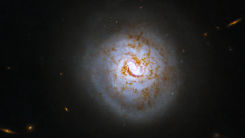
Margaret Davis

Hidden Hydrothermal System Discovered in New Zealand's Lake Rotorua, Revealing a Magnetic Anomaly

AI-Generated Voice Clones Mimic Candidates, Prompting Concerns About Growing Threat of Audio-Fakery in Elections
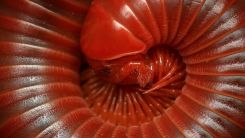
Five New Species of Spooky-Looking Millipedes Discovered in African Jungles, Shedding Light on the Vine Dilemma in Forest Ecology
Women More Vulnerable To Autoimmune Diseases Likely Due To Having Two X Chromosomes, Study Reveals

Unraveling Nature's Web: How Do Invasive Ants Disrupt Lion Predation Patterns in Kenya's Savannah?

Early CDC Analysis Reveals 54% Effectiveness of Updated COVID-19 Vaccines Against Symptomatic Infections
'Chicken from Hell': Previously Unknown Dinosaur Species Challenges Extinction Narratives

International Space Station Captures Mesmerizing Golden Airglow Above Earth's Horizon

Origins of Geminid Meteor Shower: Unraveling Its Chaotic Birth 18,000 Years Ago

6 Effective Remedies for Common Cold Backed by Science

Unexpectedly High Methane Emissions Discovered in Wetlands Exposed to Slight Seawater Influx, Challenging Previous Assumptions
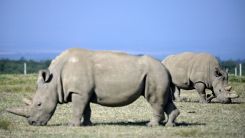
Breakthrough IVF Technique Offers Chance to Save Northern White Rhino and Other Species

890-Feet Potentially Hazardous Asteroid Is Approaching Earth; NASA Reassures There Is No Risk of Collision
Over 15,600lbs of Human-Made Space Junk Piling Up on Mars in the Past 53 Years, New Map Reveals

How Do Humans Feel Wetness: Understanding Somatosensory System in Processing Tactile Information Without Liquid Sensors

Mice's Brain Adjusts Time Processing To Communicate With Others More Effectively, Study Reveals
Hayabusa2 Mission Yields Discovery of 'Cometary Organic Matter' in Ryugu Samples, Unveiling Insights into Earth's Origins

James Webb Space Telescope Unveils Breathtaking Images of 19 Milky Way-like Spiral Galaxies in Unprecedented Detail
Ancient Brazilian Bones Challenge Syphilis Origin: Unearthing Oldest Bejel-like Disease Disproves Columbian Hypothesis

Bipedalism: How Did Humans Achieve the Unique Trait of Walking Upright?
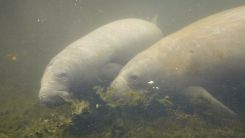
Nearly 1,000 Manatees Gather in Blue Spring State Park; Historic Gathering May Have To Do With the Weather

Next-Gen Telescopes To Analyze Exoplanet Atmospheres for Biosignatures That Can Provide Evidence for Extraterrestrial Life
Galactic Surprise: Scientists Found New Red Giant Stars in the Galaxy's Heart, Rewriting the Stellar Element Recycling Narrative

Japan Reconnects With SLIM Spacecraft Nine Days After Lunar Landing, Overcoming Technical Setback With Successful Communication Restoration

Is It Okay To Use Cat Backpacks? Veterinary Insights on Myths, Risks, and Tips for Proper Usage
Why Do These Birds Soak Their Food Before Eating? Surprising Reason Behind Goffin's Cockatoos' Food-Soaking Behavior
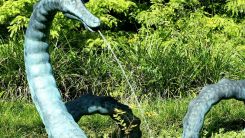
What Does Inkanyamba Look Like? Exploring the Possibility of a 20-Feet-Long Mythical Creature Inhabiting South African Rivers

Handwriting vs. Typing: Which Is Better for Enhancing Brain Connectivity for Optimal Learning?

Adenomyosis Explained: Understanding Symptoms, Fertility Risks, and Unanswered Questions
Most Popular

Persistent Coughs Are Everywhere: Here's What Experts Think Is Causing It

Ancient Hotspot Found to Have Created Great Lakes 300 Million Years Ago

Mysterious Structures Discovered Beneath the Pacific Ocean, Puzzle Scientists

Health Benefits of Drinking Hot Chocolate




